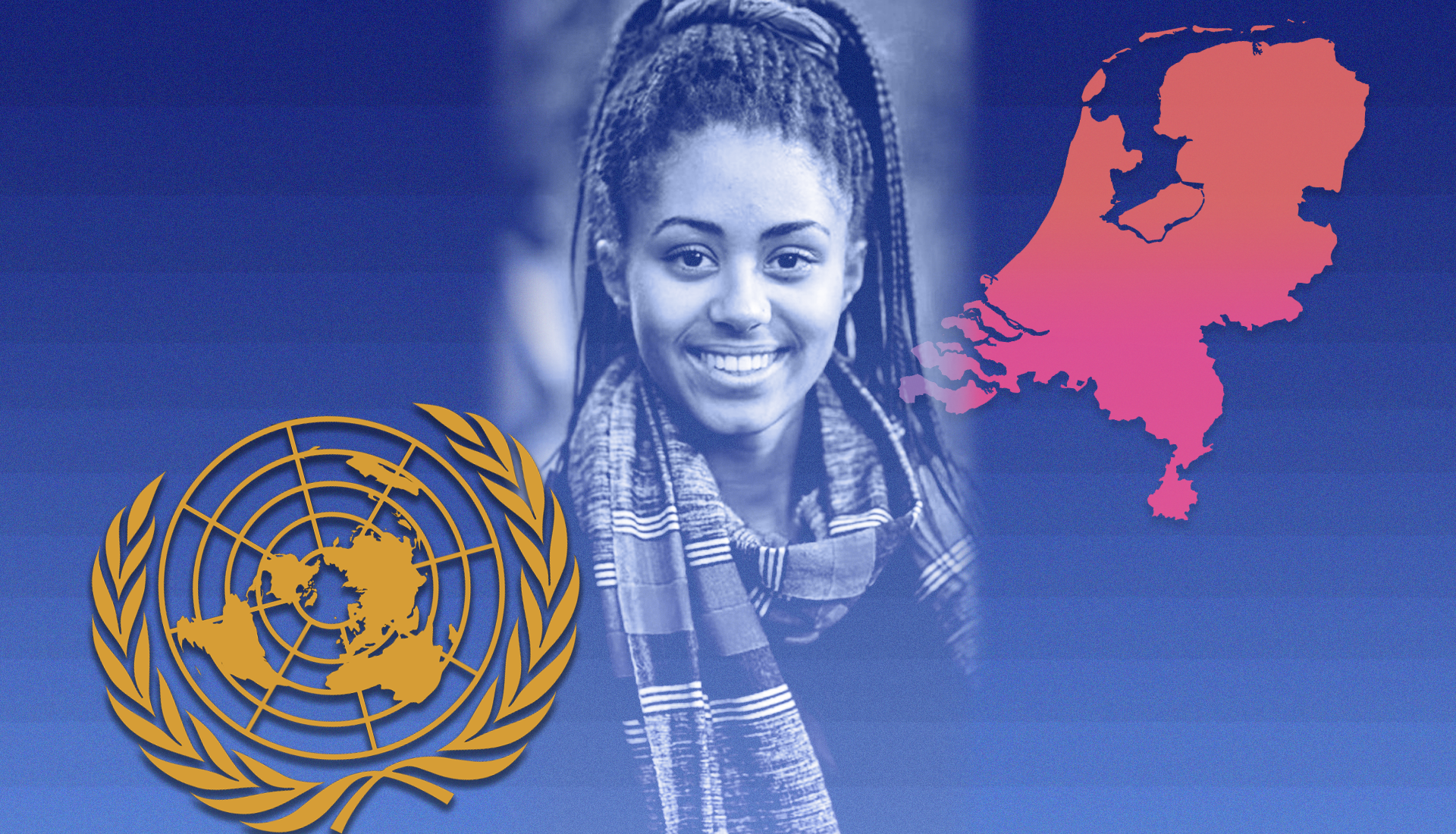This week we’re feeling especially grateful for the voice of young representative and activist Jahkini Bisselink, who’s making sure Gen Z gets a say in what matters most.
‘More than half of the world’s population is under 30’, says then 18-year-old Jahkini Bisselink to a delegation of UN state leaders. ‘So I believe it to be a moral obligation to involve youth in decision making processes.’
Said matter-of-factly in her commanding Dutch tenor, it seems as if Bisselink had said something completely uncontroversial, even obvious. Of course those who are poised to inherit our world should get a seat at the table deciding what that world might look like.
But that isn’t always the case. Too often when it comes to international politics and the bureaucracy of the UN – the world’s main intergovernmental decision-making body – key stakeholders are left out of debates. The oligarchy of administrative rights in world affairs tends to favour the rich, the white, the male, and the middle-aged. That’s where activists like Jahkini Bisselink come in.
In 2018, at just 18-years-old, Bisselink was elected to be the Dutch Youth Representative at the United Nations, where she was invited to speak about meaningful youth representation in global policy making. In Bisselink’s own words on her website, in order to prepare for the role she ‘spoke with thousands of young people throughout the Netherlands in the form of consultations’, taking her findings to the most powerful political figures imaginable and forcing them into an unprecedentedly frank conversation about what Gen Z need.
Along with the other UN Youth representatives, Bisselink penned a policy paper presented to heads of state emphasising the value of the youth voice in Human Rights and Security policy as a matter of principle.
https://www.instagram.com/p/CBDkzJhnmAg/?hl=en
Bisselink’s speech to the General Assembly, though it made points expressed by young people since time immemorial, seemed to resonate particularly profoundly with those present. ‘They [young people] feel excluded, having no access to politics and policy making’ she stated, ‘We need bold, ambitious plans, national policy which connects combating inequalities and the youth, peace and security agenda, with a focus on creating equal opportunities and participation for all young people… We do not need to agree, as long as we understand.’
So cleanly had Bisselink cut to the core of what it means to be a member of Gen Z, facing a stressful, seemingly apocalyptic adult life dealing with hangovers from environmental and financial irresponsibility the preceded us, that her words and her face have come to represent youth as a movement. This was proved recently when she appeared alongside Billie Eilish in a Saatchi & Saatchi video for Deutsche Telekom about young people and activism in the digital age.
https://www.youtube.com/watch?time_continue=63&v=Uj-zpXspfxQ&feature=emb_logo
The emotional young man in the video who calls over a friend to watch Bisselink’s speech on his mobile is all of us when we see something that makes us feel powerful. Gen Z never need to worry about being shut out of the room of government as long as badasses like Bisselink keep their foot in the door.
In the two years since her UNGA appearance, Bisselink has been a two-time G20 Youth delegate, and started her own consultancy business. ‘My mandate as a UN Youth Representative has ended, but my passion for meaningful youth participation has skyrocketed’, she says, having pivoted her goals to include ‘mak[ing] political institutions and business life more accessible for young people.’
















